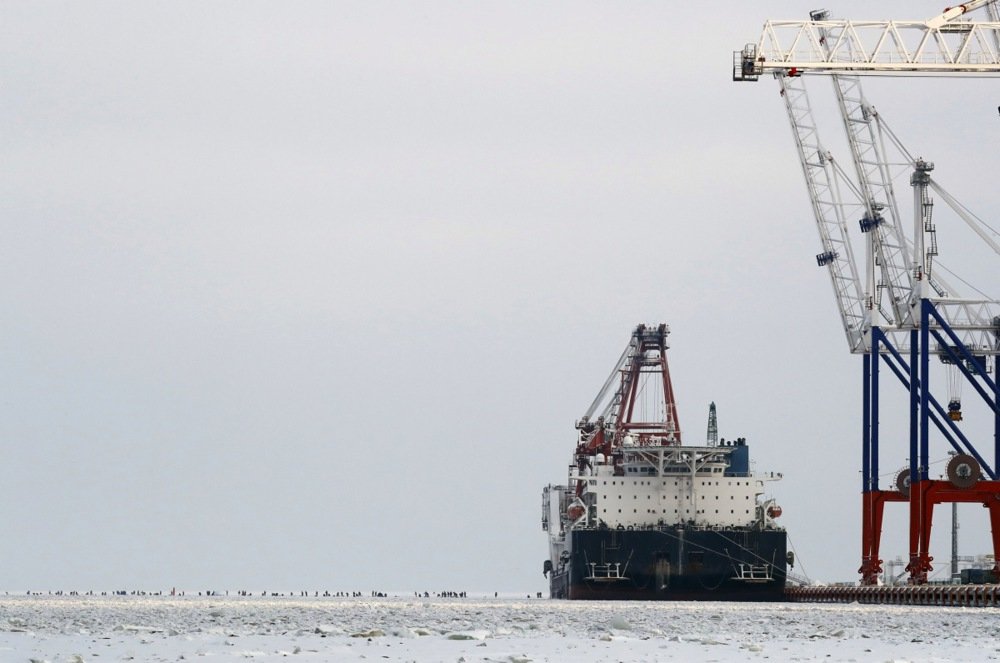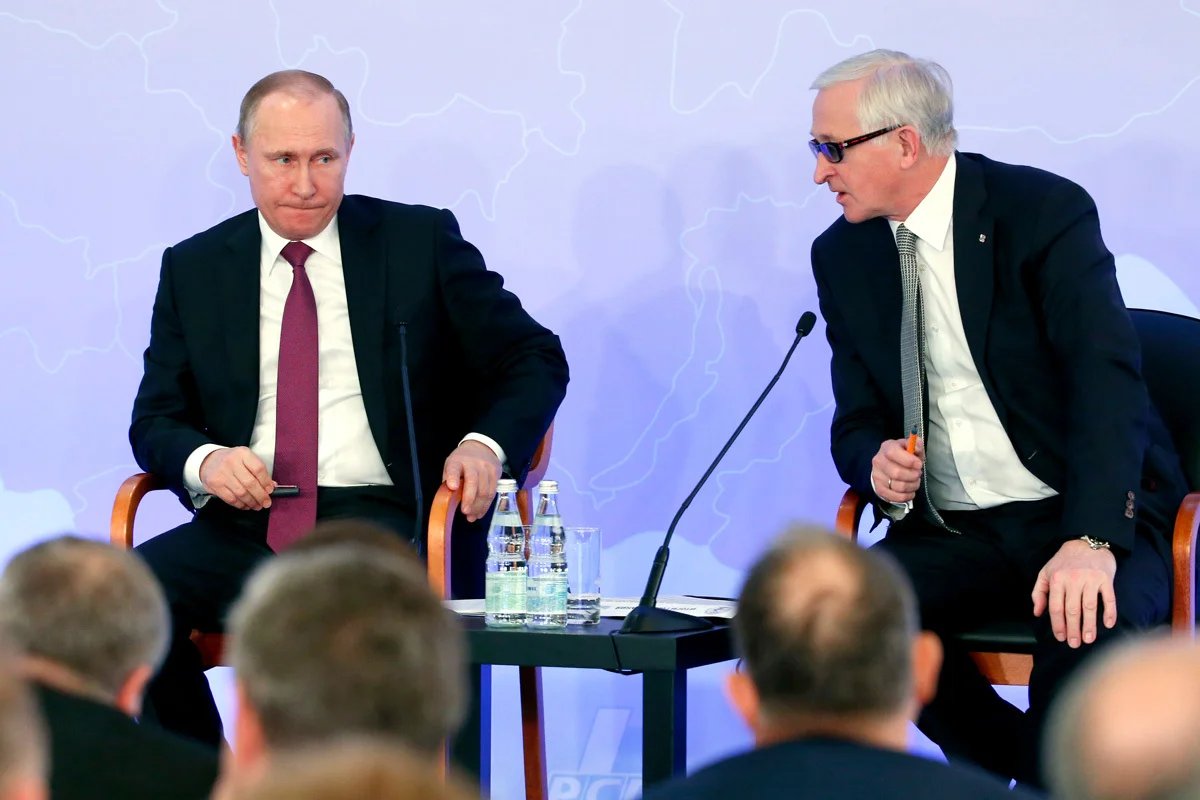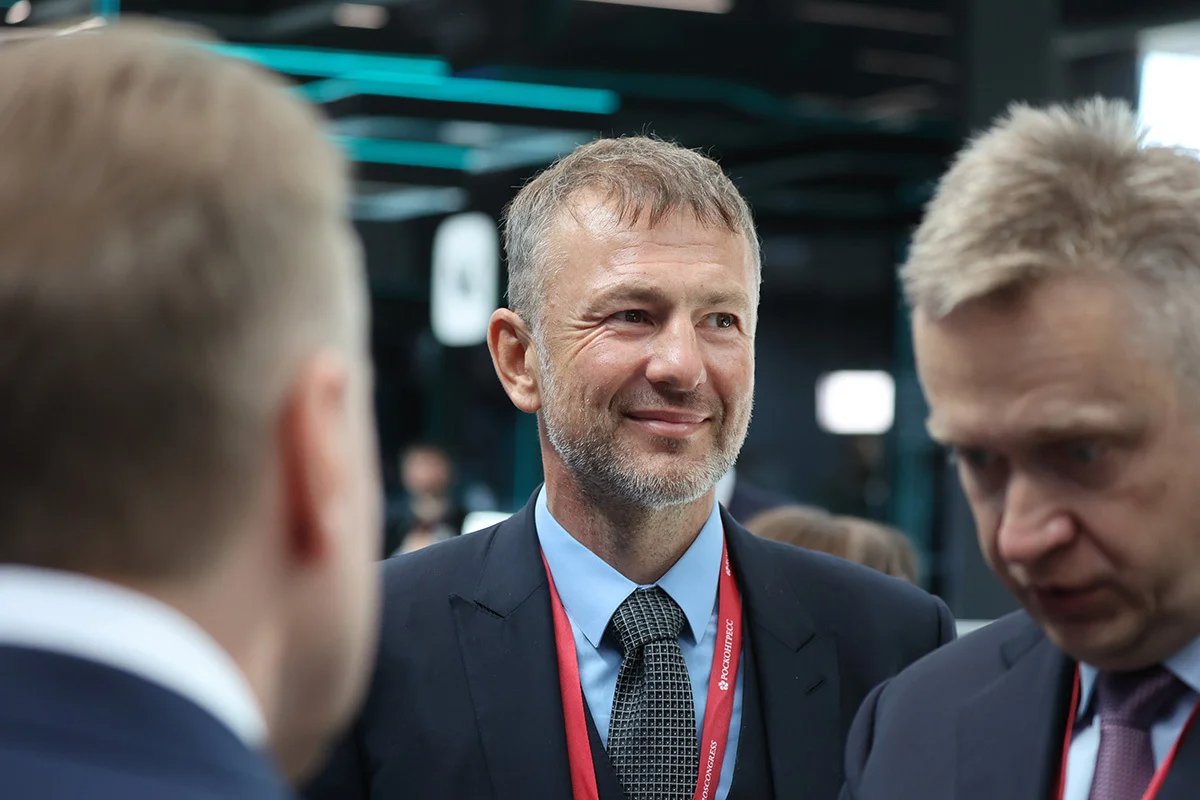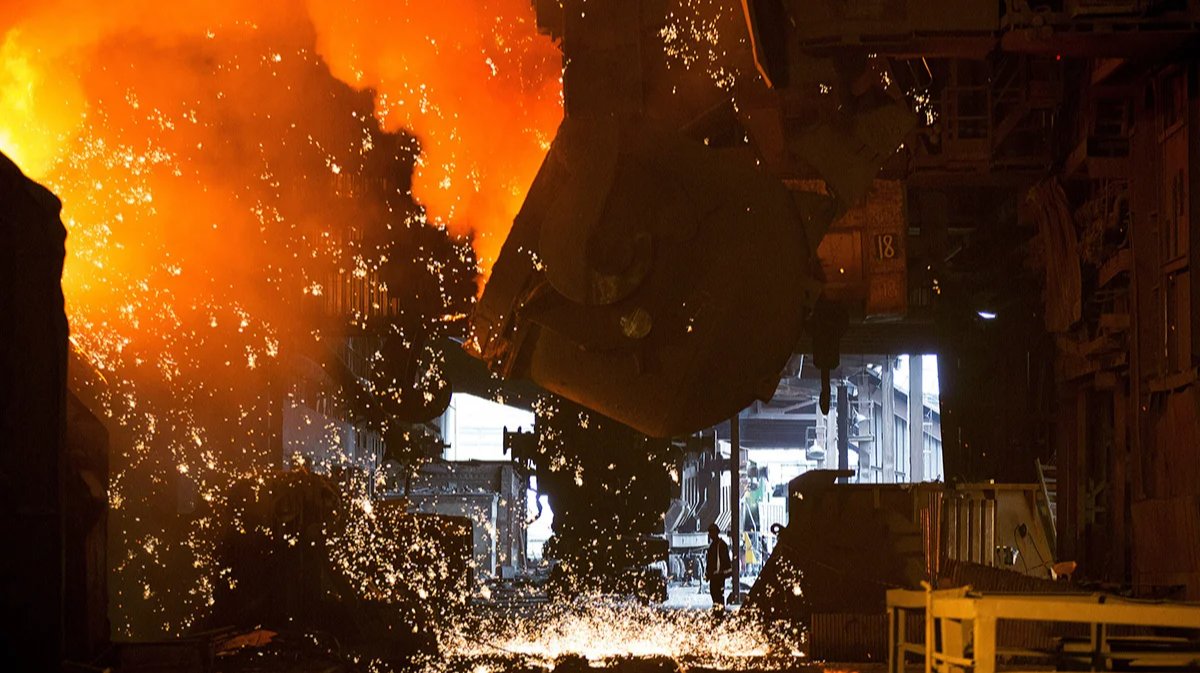A wave of expropriations is gaining momentum in Russia as the state continues to consolidate its control of the defence industry while also seizing the assets of “unpatriotic” business people living abroad. Novaya Gazeta Europe and Transparency International Russia have investigated the nationalisation of some 180 private companies in the two years since the start of the war in an attempt to understand what this major redistribution of wealth within Russia’s elites could mean.
The Russian authorities filed a record 27 lawsuits to expropriate privately owned companies in 2023, and that trend appears likely to continue this year. The number of such cases in the first two months of 2024 alone already far exceeded the average number seen in a year before the war.
Since the start of the war in Ukraine, the Russian state has expropriated or launched bids to expropriate companies with assets of over 1 trillion rubles (€10.1 billion), the equivalent to 0.6% of Russia’s GDP.
Whereas during the 2010s the Prosecutor General’s Office filed no more than one expropriation petition per year, three were made in both 2020 and 2021, a number that increased almost fivefold in 2023. Novaya Gazeta Europe and Transparency International Russia have learnt that during the first two years of the war, Russian courts received a record 40 petitions to expropriate over 180 private companies.
The most recent high-profile nationalisation was the rapid seizure of three companies belonging to businessman Yury Antipov’s Chelyabinsk Iron and Steel Works Group, with assets valued at approximately 103 billion rubles (€1.05 billion). The group is a major manufacturer of ferroalloys, which are needed to produce steel for military equipment including aircraft engines, gun barrels and armour-piercing shells.
The nationalisation process — from the filing of the petition to its approval — took less than a month. The hearing was held behind closed doors and no details were made public. According to state-affiliated news agency Interfax, after the court had ruled in favour of transferring ownership of the group to the state, Antipov was summoned for questioning, and instructed not to leave the country.
Whose assets are being taken, and why
Statistics analysed by Transparency and Novaya Europe show that prosecutors have most often gone after companies in the military-industrial, mechanical engineering, food and fishing sectors, followed by companies that own port facilities and large real estate portfolios. The attempts are almost always successful; only twice has the Prosecutor General’s Office rejected a prosecutor’s claim or imposed a settlement.
Transparency International Russia’s executive director Ilya Shumanov explains that the state has focused on the defence sector as it wants to exercise greater control over the war effort, while the high market value of property and land in Moscow, the Moscow region, St. Petersburg and the southern regions of the country has also made companies with large portfolios in those areas a target. Similarly, the fishing industry is also desirable to the state due to the value of its catch, its quotas and its fleet of vessels.
The authorities normally give one of three official reasons to justify the seizure of assets.
The most commonly invoked reason is the illegal ownership of assets, used in 20 cases between 2022 and 2024. The second-most common justification, cited in 14 cases, is the violation of anti-corruption laws, which appears not to apply to assets privatised in the 1990s, but instead to those acquired with money that the Prosecutor General’s Office considers to have been illegally earned. In a further three cases, prosecutors justified seizure by questioning the company’s legal basis and arguing that it and its transactions should be retroactively deemed invalid.
Prosecutors are focusing on business people who have left the country, with about half the owners of seized companies now living outside Russia.
The origins of wartime nationalisation
An uptick in nationalisation lawsuits was first seen in 2023, as the unspoken moratorium on the state’s expropriation of private assets that reigned in the 2010s was abandoned. In fact, privatisation had continued throughout the 2010s, with several major privatisation deals taking place, including the sale of a state stake in Russian shipping giant Sovcomflot.
The harbingers of change appeared shortly before Russia’s full-scale invasion of Ukraine: in both 2020 and 2021, three nationalisation claims were filed, according to SPARK, a system for verifying legal entities and individuals. All three were successful. In one 2021 claim, the state took over the Solikamsk Magnesium Works, the country’s largest producer of magnesium, niobium and tantalum. In another case from that year, the state seized Port Bronka, the only deep-water sea terminal in St. Petersburg’s main port.
In total, six legal actions to review previous privatisations were undertaken in 2022. But in the second year of the war, still more private assets were confiscated in two distinct waves of nationalisation.

Port Bronka outside St. Petersburg, February 2018. Photo: EPA-EFE/ANATOLY MALTSEV
The wave effect
The first wave took place between February and August 2023, during which time the Prosecutor General’s Office filed 20 petitions, and the Investigative Committee (IC) — the main federal investigative authority, one department of which investigates corruption — filed one itself to requisition the assets of Metinvest-Eurasia, a Moscow-registered company belonging to Ukrainian mining group Metinvest, on the grounds that it allegedly financed the Armed Forces of Ukraine (AFU). The group owned both the Azovstal and the Illich Iron and Steel Works in the Ukrainian city of Mariupol, which had just been captured by Russian troops.
To substantiate its claim, the IC pointed to a transfer of money made by Metinvest Eurasia to the First International Ukrainian Bank, which, it alleged, had then sent the money to the AFU. On the same grounds, the Prosecutor General’s Office stripped Metinvest’s owners — Ukrainian billionaire Rinat Akhmetov and his partners, Serhiy Kyi and Borys Kolesnikov — of the Konti confectionery factory in the southwestern Russian city of Kursk, in a second wave of renationalisation in late 2023.
The third asset to be seized in 2023 for “financing the AFU” was a mechanical engineering company supplying equipment used in the production of aircraft, helicopters and infantry fighting vehicles. The largest company successfully nationalised between February and August 2023 was Metafrax Chemicals, Russia’s biggest methanol producer. The company, estimated to be worth over 120 billion rubles (€1.2 billion), was seized from billionaire owner Seifeddin Rustamov, a US resident and thus someone at a higher risk of asset seizure.
Dramatic pause
Even big business lobbyist Alexander Shokhin, a noted Kremlin loyalist who heads the Russian Union of Industrialists and Entrepreneurs (RSPP) said he was shocked at the scale of asset redistribution in Russia in that six-month period.
In a September 2023 interview with state-affiliated business news outlet RBC, he complained that the business world was “reacting badly” to the news. Minister of Economic Development Maxim Reshetnikov agreed, calling the privatisation review a dead-end street.

Vladimir Putin and Alexander Shokhin (right) talking at the RSPP Russian Business Week in Moscow, 16 March 2017. Photo: Sergey Ilnitsky / EPA
The following day, while attending the Eastern Economic Forum in Vladivostok, Russian President Vladimir Putin said that there would be no renationalisation. He said that the government had no desire to create a “nightmare” for business owners, although he stressed that everybody was obliged to obey the laws of the Russian Federation.
Despite describing Putin’s statement as “a theatrical gesture aimed at reassuring not Western investors, but rather the Eastern investors coming onto the Russian market”, Shumanov said that the Prosecutor General’s Office had slowed the pace of its nationalisation moves in their wake.
However, Shumanov suspects that due to fear of asset security, Russia may remain an unattractive investment destination even for the so-called “friendly” countries the Kremlin is hoping to attract to replace its former Western business partners.
“Companies from Turkey, India, China and the UAE won’t buy anything without guarantees from the Russian authorities,” Shumanov said.
New records
A brief hiatus in the expropriation spree came last summer. Two nationalisation bids launched in early August were unsuccessful, and no further petitions were filed after that until the end of October.
The Prosecutor General’s Office refused to take over the Russian assets of the German company HeidelbergCement, now Heidelberg Materials, saying it had found “other legal ways to protect state interests”. Prosecutors likewise managed to reach a settlement with the Siberian Generating Company, founded by Andrey Melnichenko, Russia’s richest man, despite Melnichenko’s damning remarks about Russia’s actions in Ukraine.

Andrey Melnichenko at the St. Petersburg International Economic Forum (SPIEF) in June 2021. Photo: Andrey Rudakov / Bloomberg / Getty Images
But the hiatus ended with a flurry of new lawsuits late last year, ushering in the second wave of nationalisation, which continues to this day. Targets of this latest round include Sakhalin “crab king” Oleg Kan, Kremlin critic Sergey Petrov, whose car dealership Rolf is valued at €650 million, and billionaire and Uralchem founder Dmitry Mazepin. All three men have left Russia.
The FSB and the Rotenberg brothers
The FSB appears to be involved in some of the nationalisation cases. Its employees and materials have figured in multiple lawsuits, such as when the FSB Directorate was the third party in the attempt to nationalise the Schlumberger explosives factory in the Volga region republic of Bashkortostan.
The ultimate goal of these wartime expropriation efforts appears to be the consolidation of certain key assets into a single pair of hands. Shumanov suspects that the transfer of seized assets to “the right people” is still in its early days. The Prosecutor General’s Office has been handed extraordinary new powers and can now effectively seize any business in the country.
Shumanov said he saw “clear signs of consolidation” in industries such as the chemical industry, tool manufacturing and other defence contractors, as well as in shipping and the fishing industry — sectors in which the Prosecutor General’s Office is already practised at seizing companies.
Oligarchs with ties to Putin are reportedly among the beneficiaries of this scheme: in 2020 the state transferred the ownership of the Bashkir Soda Company and several other firms to the Ruschem Group. Some media reports have suggested that Ruschem has ties to Putin’s friends, the Rotenberg brothers, though there has been no independent confirmation of that.
Out with the old
The quantity of nationalisation cases, the traits of their former owners, and the identities of their new management, all underscore the real reason behind Russia’s redistribution of assets.
Few doubt the authorities are seeking to take over defence manufacturers while simultaneously seizing the assets of “unpatriotic” business people living abroad.
“Nationalising these companies sends a signal to others that they should return to Russia. Some business owners are already making public statements that they plan to,”
said Andrey Yakovlev, an economist at Harvard University’s Davis Center.
The expropriation procedure itself has been fundamentally altered by the war. Whereas in the past such cases took months or even years to resolve and were subject to appeal, everything now happens quickly, sometimes behind closed doors and with the involvement of the secret services. Wartime nationalisation’s salient feature has been the removal of any protection individuals and companies might have expected from the rule of law — in Yakovlev’s words, as “there has already been a violation of all possible legal norms.”
As the beneficiaries in these situations are businessmen from Putin’s inner circle, he added, “we can soon expect redistribution of assets at the highest level”.
Next in the firing line are the Yeltsin-era businessmen who got rich in the immediate aftermath of the Soviet Union’s collapse. During Putin’s annual address to the Federal Assembly on 29 February, he was unequivocal that the authorities would crack down on Russia’s original oligarchs, referring to them as people who “while providing no benefit to society, consider themselves a special caste with special rights and privileges.”
If the current wave of nationalisation does indeed turn towards those who made vast sums of money in the 1990s, then, according to our research, 88 of the 110 billionaires on the 2023 Russian Forbes list should have strong grounds for concern.
Join us in rebuilding Novaya Gazeta Europe
The Russian government has banned independent media. We were forced to leave our country in order to keep doing our job, telling our readers about what is going on Russia, Ukraine and Europe.
We will continue fighting against warfare and dictatorship. We believe that freedom of speech is the most efficient antidote against tyranny. Support us financially to help us fight for peace and freedom.
By clicking the Support button, you agree to the processing of your personal data.
To cancel a regular donation, please write to [email protected]

